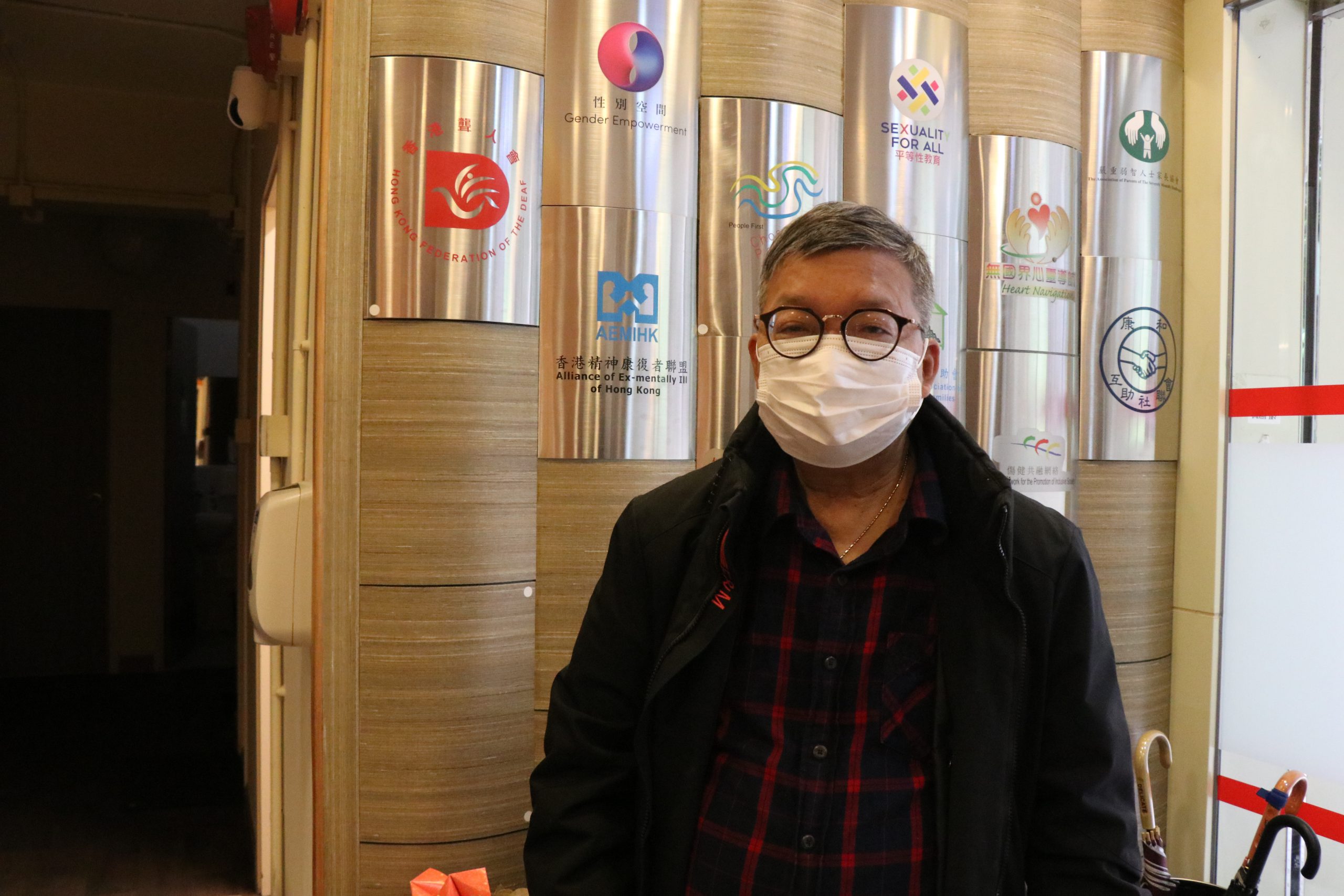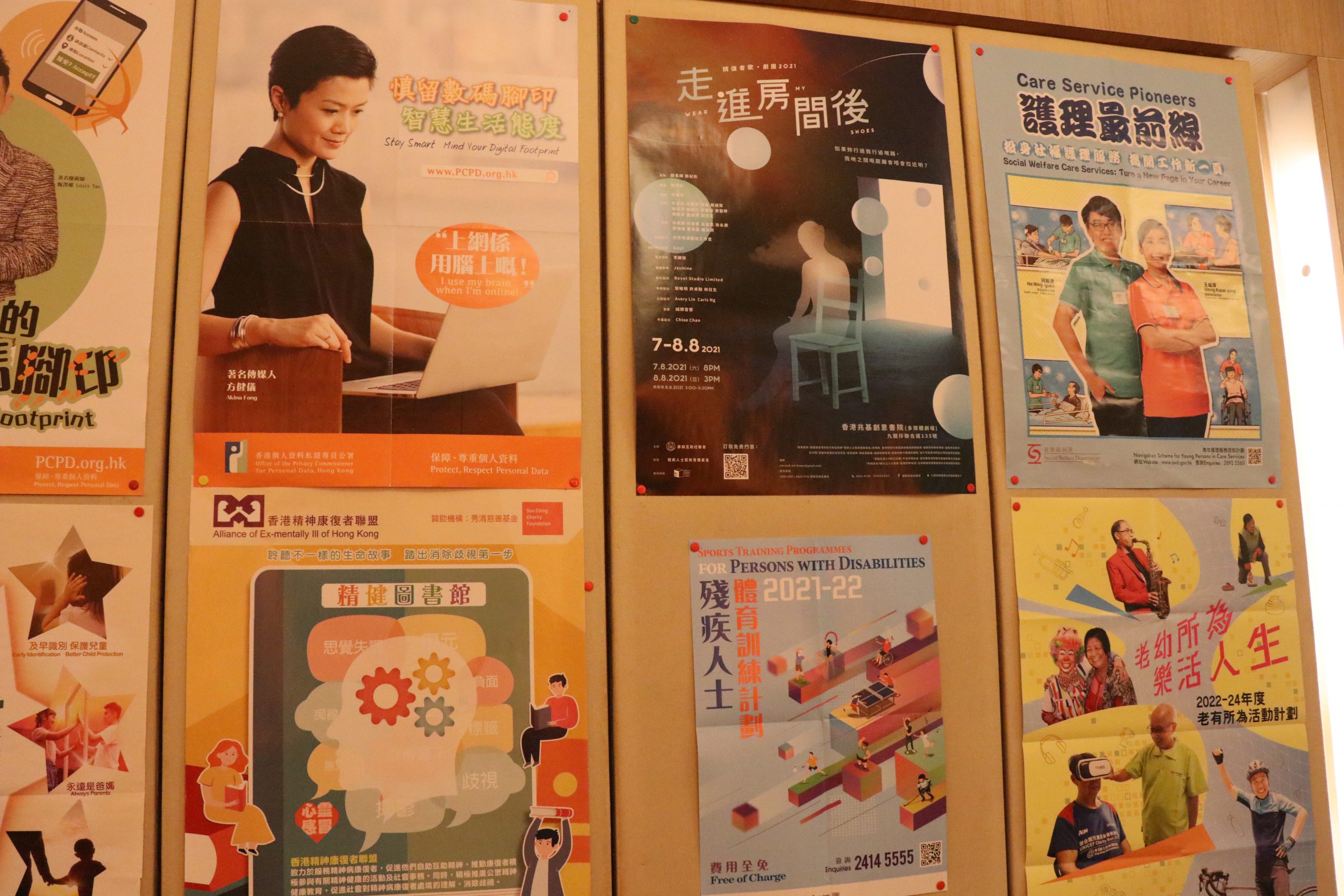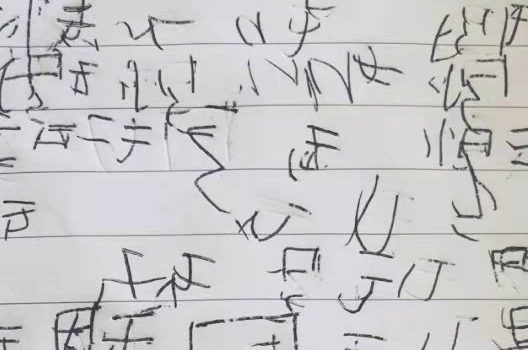Nancy Chan is a qualified kindergarten teacher, but had trouble finding a job.
“They didn’t hire me when I confessed to my potential employers that I had a history of psychosis,” she said. “When I stopped revealing my mental health history, job opportunities started to come,” she added.
An estimated one in seven people in Hong Kong experience some form of mental disorder at any given time, according to Mind HK, a local mental health charity.
“Ten to 20 years ago, there was not much public education on mental health illnesses. Patients have often faced discrimination and were excluded from mainstream society,” said Chris Wong, Head of Professional Services from the New Life Psychiatric Rehabilitation Association.
Her organisation provides services such as vocational rehabilitation and employment services for patients in the autism spectrum and for those rehabilitated from mental illness.
In 1977, the government published the first Rehabilitation Policy White Paper to help mental health patients. But in 1989, the government abandoned the rehabilitation service, which further delayed the comprehensive review and reduced the government’s commitment to the service.
Wong said rehabilitated psychiatric patients often face unfair treatment during recovery. “People may use “crazy man” to describe psychiatric patients. When a person feels mentally ill, people will think they are crazy during the recovery process,” she added.
Rehabilitated patients may have residual symptoms such as refractions, uncontrollable body movements and facial expressions during recovery.
In recent years, some local celebrities have raised awareness on mental illness by sharing their experiences with the public. “The community gradually understands what really happens to mental illness patients,” Chris Wong said.
In March 1992, the government launched a public consultation on Rehabilitation Policies and Services. In 2010, NGO community support services were enhanced and the Integrated Community Centre for Mental Wellness service was started.
“We are just ordinary people, who have contributed to society and have the right to fight for our rights and interests,” said Philip Wong Man-lip, a former patient and the chairman of the Alliance of Ex-mentally Ill of Hong Kong.
The support group has fought with the government over the concessionary fare of HK$2 for every transport trip for nine years. Now they are striving for follow-up medical consultations to be provided to patients at night.
The Hospital Authority introduced the first mental health night service in 2001, but it was closed five years later because of low utilisation rates. The public psychiatric specialist out-patient clinics close at 4:30 p.m. every day.
Recovered mental health patients have to revisit their doctors regularly. Patients have to request personal leave and the employers will be aware of their illnesses.
“If nighttime clinics are provided, they don’t need to ask for leave and let their employers know about it,” Philip Wong said.
“In the past, some employers who discover that a worker has a history of mental illness would try to find other reasons to fire the person because they knew it would violate the disability discrimination statute,” he added.
It is unlawful for employers to discriminate against persons with disability, according to the Cap. 487 of Disability Discrimination Ordinance.

More than half of about 70 employed recovered mental health patients have not disclosed their mental states to their employers because they want to be treated like normal people, according to Wong.
“The media is also shaping the stereotypes of mental health patients. We reported to the Equal Opportunity Commission that the Hong Kong Daily News tried to vilify psychiatric patients. It's not fair for us to be slandered like that,” Philip Wong said.
In 2012, the Equal Opportunity Commission condemned the report of Hong Kong Daily News for publishing discriminatory words such as“crazy lunatics”. The commission denounced the words and images used in the article because they might incite the public's disgust towards mentally ill patients.
The Hong Kong Journalists Association also criticised the article because it stigmatised patients and exaggerated the facts. The newspaper then published a half-page interview about the feelings of recovered mental health patients, and Wong was one of the interviewees.
“The public did show acceptance to the former mental health patients but it’s not comprehensive enough. Once there is a serious violent mental health-related incident in the community, it will take much longer for the public to accept,” Chris Wong said.

“I understand that people will avoid talking about their mental health issues because of the social stigma. So whenever someone confides in me now, I give them my full attention,” Chan said.
According to an online survey conducted by the Hong Kong Society of Biological Psychiatry and Hong Kong Public Opinion Research Institute, 95% of 4340 respondents believe that society often or sometimes discriminates against people with mental disorders.
“Job opportunities are important in the process of recovery. Patients can reach out to other people and build their self-esteem by knowing they are capable of working,” Chris Wong said.
There are 54 social enterprises in Hong Kong that recruit rehabilitated mental illness patients, according to the Hong Kong Social Enterprise Organisation.

“Educating the public is most important in order to minimise inequality, treat them as ordinary people, respect them and pay attention to what they have to say,” Chris Wong said.
According to a survey conducted by Mind HK in Aug. 2021, 81.5% of 1010 respondents expressed that they had never received any information related to mental health.
“Try to take care of the ex-mentally ill people and listen to them if they are your neighbour, your colleagues or your friends,” she added.
《The Young Reporter》
The Young Reporter (TYR) started as a newspaper in 1969. Today, it is published across multiple media platforms and updated constantly to bring the latest news and analyses to its readers.

Coronavirus pandemic adds to the burden of special education needs(SEN) students and families

Hong Kong running out of coffins, funeral industry says




Comments